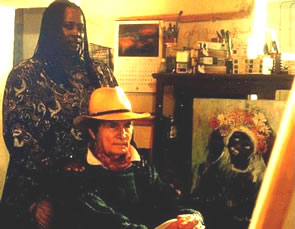De Belgische schrijver Jean-Philippe Toussaint werd op 29 november 1957 geboren in Brussel. Zie ook mijn blog van 29 november 2006.
Uit: Television (Vertaald door Jordan Stump)
“I went into the kitchen and opened the cupboard under the sink, kneeling down to extract a basin and a sponge, as well as the spray bottle of window cleaner, so beloved of my son (for its “tricker,” as he said, doubly wrongly, to refer to the lever that operated the pump), which did not prevent him from displaying a particularly itchy forefinger whenever I authorized him, under my imperturbable surveillance, to moisten the windows or coffee table with a spray of that miraculous liquid, which went ssshhht and turned foamy the moment it touched the glass. It’s true that this was a fascinating tool, this transparent plastic bulb, full of a limpid, blue solution with a lovely detergent scent. I threw open one of the living room’s two French doors, almost two meters high, with a single unbroken pane of glass extending almost to the ceiling, topped moreover by a little transom, and I climbed onto the radiator, the basin at my feet. Standing on the brink of the void, clasping the French door with one hand while the other peppered the glass with the spray from my pistol, I soon realized that, once the first lighthearted spatterings are over, carefree and slightly silly, the window washer’s delight, of which Jackson Pollock surely knew a thing or two, the task quickly turns tiresome, for now there’s nothing to do but wipe, like some maniacal housewife, firmly pressing your sponge to the glass–or, even better than a sponge, a page from an old newspaper, for, even where windows are concerned, nothing will ever replace the printed page, in my opinion. I thus held in my hand a crumpled sheet of newsprint, and I was wiping the top of the windowpane, standing on the edge of the sill, sometimes leaning perilously into the emptiness to reach some complicated corner and give it a finishing touch with a sponge, when I saw a taxi rolling down the street before me. I stopped wiping for a minute, my sponge in my hand, to watch its approach. Slowly the car rolled to a stop in front of my building, the engine still running quietly. After a moment, the driver climbed out and raised his head toward me, casting a quick glance over the building’s facade. Slightly uncomfortable on my second-floor window ledge, I looked away and began wiping distractedly, doing me best to look occupied. I wiped slowly, almost in place, my eyes downcast. “Hallo,” the driver said abruptly, to attract my attention, “did you call for a taxi?” “Me?” I said, cautiously pointing at my breast with the sponge. Me? How could he accuse me? Couldn’t he see I was busy, washing the windows? He let it drop there…

Jean-Philippe Toussaint (Brussel, 29 november 1957)
Zie voor onderstaande schrijvers ook mijn blog van 29 november 2006.
De Ierse schrijver C.S. Lewis werd geboren op 29 november 1898 in Belfast.
De Amerikaanse schrijfster Louisa May Alcott werd geboren op 29 november 1832 in Germantown, Pennylvania.
De Oostenrijkse schrijver Ludwig Anzengruber werd geboren op 29 november 1839 in Wenen.
De Duitse schrijver Wilhelm Hauff werd geboren in Stuttgart op 29 november 1802.

